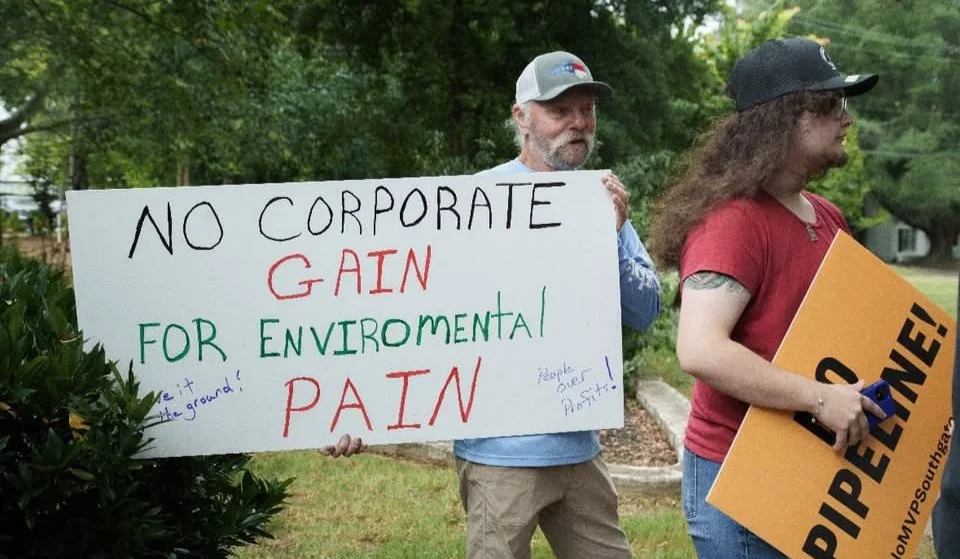Protecting Our Watersheds: The Case Against the Southeast Supply Enhancement Project
September 4, 2025 -
Emily Sutton and over 50 other concerned neighbors gathered at the 401 permit hearing in Kernersville. Emily’s comments are below; they express the many reasons why this 401 permit should NOT be granted to Transco.
I'm Emily Sutton, your Haw Riverkeeper at Haw River Assembly. We work every day to protect the Haw River watershed and the ecosystems and communities that depend on it. We are also part of a network of Riverkeepers across the state working to fight for better protections for our streams and our communities.
This pipeline project poses an urgent threat to streams and sensitive habitats, and to drinking water supplies both adjacent to the route and for communities downstream. This pipeline would cause irreparable damage to nearly 12,000 linear feet of streams throughout the full route. The method for stream crossing for these pipelines destroys sensitive aquatic habitats. Construction of these pipelines often results in streams inundated with sediment, which suffocates aquatic life. These habitats rarely recover from such destruction. Additionally, the pipeline coatings and lubricants used during construction can contaminate these streams, which are headwater streams to drinking water supplies for Greensboro and much of Guilford County.
Through nearly a decade of investigating PFAS contamination for communities in the watershed, we have discovered that groundwater, once contaminated, is incredibly difficult to mitigate. Most families along the proposed route of this pipeline project rely on groundwater wells for their drinking water supply. Transco has committed to groundwater testing for several families along the proposed route, but has yet to include what measures will be taken to prevent groundwater contamination from these pipe coatings and lubricants in the construction process.
The destruction of nearly 12,000 linear feet of streams is stated to be temporary in this permit. However, we know that the destruction of buffers and well-established vegetation along stream banks is the single most effective way to reduce runoff, minimize pollutants in streams, and reduce the impacts of flooding. As our state continues to see bursts of rainfall that result in catastrophic flooding, we simply cannot afford to continue to destroy our best tools for flood resiliency.
Our communities do not see a need for this project, and do not stand to benefit from this project. Communities impacted by this project in Guilford County, Forsyth County, and the Town of Midway successfully pushed for their elected representatives to adopt resolutions on the pipeline. Forsyth County specifically urged FERC and NCDEQ to deny this permit.
Our state must take action to prioritize the health and safety of our communities' ecosystems, protect our drinking water supplies, and promote climate resiliency to minimize catastrophic flood impacts as storms worsen. I'm encouraged by all of you who have shown up on a Thursday night to make our voices heard. This permit must be denied.


